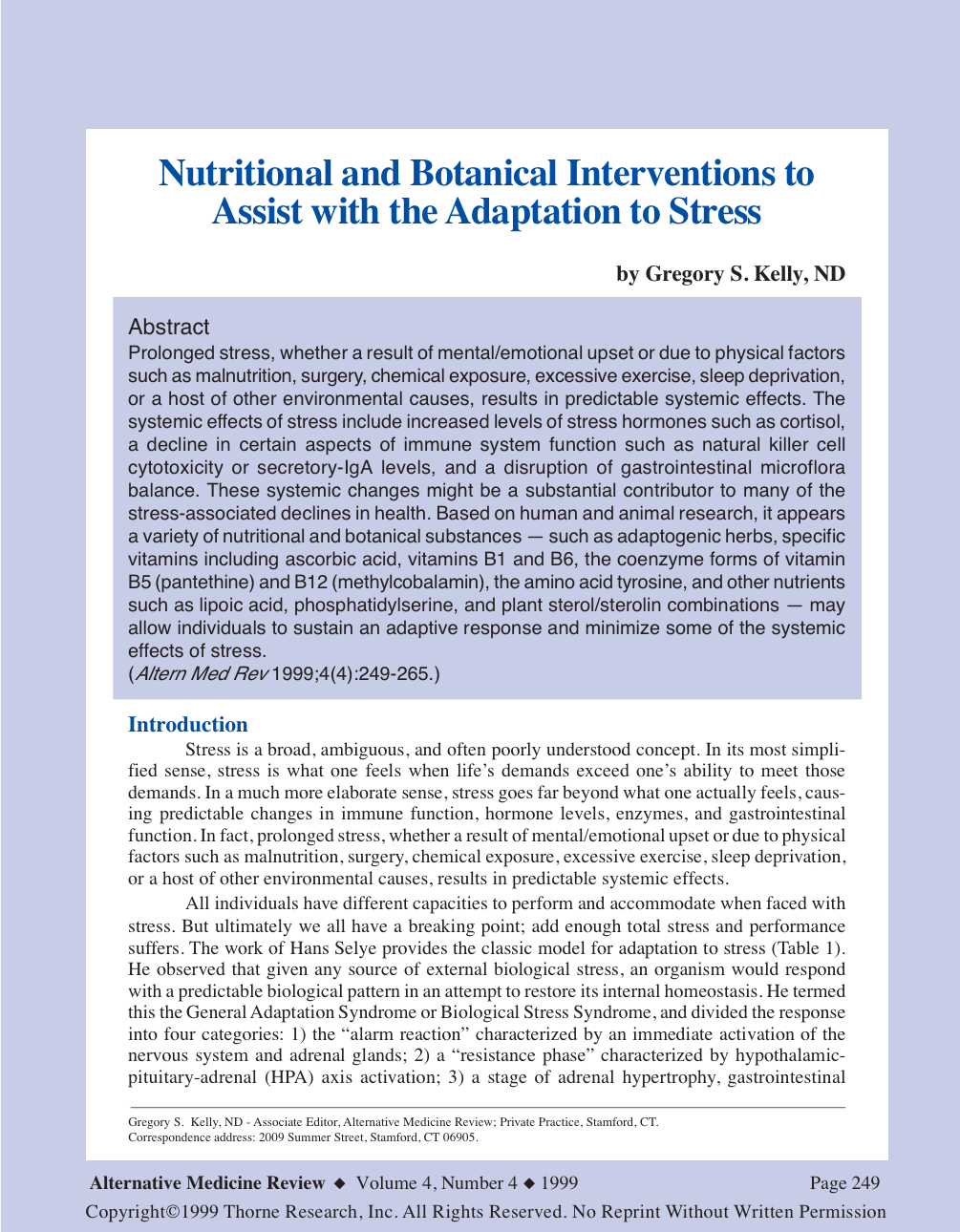Abstract
Prolonged stress, whether a result of mental/emotional upset or due to physical factors such as malnutrition, surgery, chemical exposure, excessive exercise, sleep deprivation, or a host of other environmental causes, results in predictable systemic effects. The systemic effects of stress include increased levels of stress hormones such as cortisol, a decline in certain aspects of immune system function such as natural killer cell cytotoxicity or secretory-IgA levels, and a disruption of gastrointestinal microflora balance. These systemic changes might be a substantial contributor to many of the stress-associated declines in health. Based on human and animal research, it appears a variety of nutritional and botanical substances — such as adaptogenic herbs, specific vitamins including ascorbic acid, vitamins B1 and B6, the coenzyme forms of vitamin B5 (pantethine) and B12 (methylcobalamin), the amino acid tyrosine, and other nutrients such as lipoic acid, phosphatidylserine, and plant sterol/sterolin combinations — may allow individuals to sustain an adaptive response and minimize some of the systemic effects of stress. (Altern Med Rev 1999;4(4):249-265.)

